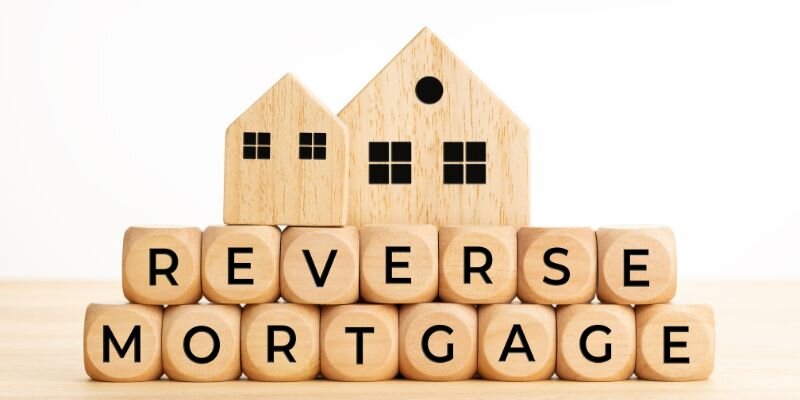
Financial Planning for Seniors: Reverse Mortgages Explained
If an adult in Saint Paul, Minnesota wants to sell a home that has a reverse mortgage on it, they need to know a lot about them. With a reverse mortgage, people aged 62 and up can turn some of their home equity into cash without having to sell their home.
Consulting with a real estate agent experienced in reverse mortgages can provide valuable insights into pricing strategies and marketing techniques tailored for homes under these conditions. If you need to sell your Bloomington house faster, partnering with buyers who specialize in quick transactions can help you achieve your financial goals efficiently.
For seniors planning to sell, it’s essential to grasp how this financial tool impacts their overall financial strategy. The outstanding loan balance must be settled from the sale proceeds when selling a home with a reverse mortgage.
This means coordinating with real estate agents and lenders to ensure all transactions comply with federal regulations and local Minnesota laws. valuating current market conditions in Saint Paul is vital, as they influence the home’s sale price and potential profit after settling the reverse mortgage debt. Working with cash home buyers in Saint Paul can help ensure a quicker and smoother selling process.
Proper financial planning involves consulting with professionals familiar with reverse mortgages and exploring alternative options that better suit individual retirement goals and needs.
Understanding Reverse Mortgages: A Comprehensive Guide
Saint Paul, Minnesota residents have a novel option when it comes to borrowing against their home equity: reverse mortgages. In order to sell a home with a reverse mortgage, it is essential to understand these loans.
People aged 62 and up can get a reverse mortgage, which lets them turn some of their home equity into cash without selling their houses or making monthly mortgage payments. But if you sell a house with a reverse mortgage, you have to use the money from the sale to pay off the loan.
This payment includes any interest and fees that have built up over time. You need to go to your lender to get a payback statement that shows the exact amount you owe on the reverse mortgage.
Sellers should also be aware of current market conditions in Saint Paul so they can price their home appropriately and ensure they cover all outstanding debts tied to the property. Engaging a knowledgeable real estate agent who understands both local market trends and the nuances of reverse mortgages can facilitate a smoother transaction, ensuring compliance with all legal obligations while maximizing potential returns. You can also learn more about how our process works to plan your sale more efficiently.
The Pros and Cons of Reverse Mortgages in Today’s Market
Many homeowners in Saint Paul, Minnesota, use reverse mortgages as a way to get money, but it’s important to know the advantages and downsides of these loans in today’s market. One of the best things about a reverse mortgage is that it lets older homeowners get to the equity in their homes without having to sell or move away. This gives them extra money during retirement.
This can be quite helpful in an economy that is changing, when fixed salaries may not keep up with rising costs of living. The bad news is that reverse mortgages usually have higher fees and interest rates than regular loans, which can eat away at the remaining equity over time.
Additionally, these loans must be repaid when the homeowner sells the property or passes away, potentially complicating matters for heirs wishing to keep the family home. In today’s real estate market, it’s essential for those considering selling a house with a reverse mortgage to carefully weigh these factors and consult with professionals who understand local regulations and housing trends specific to Saint Paul.
Key Considerations for Selling a Home with a Reverse Mortgage

There are a few important things to think about when selling a property with a reverse mortgage in Saint Paul, Minnesota, to make sure the sale goes smoothly. First and foremost, you need to know how much money you owe on the reverse mortgage loan. This includes the principal amount borrowed as well as any interest and fees that have built up.
You need to get enough money for your home to pay off this balance. It is also very important to work carefully with your lender to get a payoff statement that shows how much money you need to pay off the loan.
Consulting with a real estate agent experienced in reverse mortgages can provide valuable insights into pricing strategies and marketing techniques tailored for homes under these conditions. Additionally, understanding local Saint Paul market trends will help you set a competitive price that attracts buyers while ensuring all legal obligations of the reverse mortgage are met.
During negotiations, transparency about the reverse mortgage can foster trust with potential buyers, streamlining the sales process. Finally, ensuring compliance with any specific state regulations or homeowner association rules applicable in Minnesota is vital for preventing unexpected delays or complications during closing.
Legal Implications of Selling Property with a Reverse Mortgage
When people in Saint Paul, Minnesota, sell their homes with a reverse mortgage, they need to be aware of certain legal issues that must be taken into account to make sure the deal goes smoothly. With a reverse mortgage, seniors can turn the value of their home into loan proceeds. However, the remaining loan amount is due when the home is sold.
Homeowners need to carefully read their reverse mortgage deal to find out if there are any fees or penalties for paying it off early. Also, they need to get a payoff account from the lender that shows how much they owe in total at closing.
Additionally, sellers need to ensure that all proceeds from the sale first satisfy the reverse mortgage debt before any remaining equity can be distributed. In Saint Paul, compliance with local real estate laws and regulations is crucial, and consulting with a real estate attorney familiar with Minnesota’s legal landscape can provide invaluable guidance.
To avoid future conflicts and fulfill all sales-related contractual duties, it is helpful to have a firm grasp of these legal considerations.
Tax Implications of Selling a Home with a Reverse Mortgage
When selling a home in Saint Paul, Minnesota with a reverse mortgage, it’s important to know how the taxes will affect the sale. With a reverse mortgage, people aged 62 and up can turn some of their home’s value into cash without having to pay it back right away.
But there are some tax issues to think about when you decide to sell your home. First, the rest of the reverse mortgage must be paid off with any money from the sale of the house.
If there are excess funds after settling this debt, those may be subject to capital gains tax depending on how much your home’s value has appreciated since purchase. In Minnesota, as in other states, you can exclude up to $250,000 of capital gains if you’re single and $500,000 if married filing jointly from taxable income under certain conditions; however, this requires meeting specific residency and ownership criteria.
It’s also important to note that while the discharge of indebtedness—such as what occurs when paying off a reverse mortgage—is generally not taxable because it is secured by your home, keeping comprehensive records and consulting with a local tax advisor familiar with Minnesota’s regulations will help ensure compliance and optimize any potential tax benefits while minimizing liabilities when selling your home in Saint Paul.
Common Challenges When Selling Homes with Reverse Mortgages
Selling a home with a reverse mortgage in Saint Paul, Minnesota, presents several common challenges homeowners should be prepared to navigate. One of the primary difficulties is understanding the payoff process for the reverse mortgage loan.
Homeowners should get a detailed statement from their lender to get a good idea of the total repayment cost of their loan. These statements can get complicated when interest and fees are factored in. The home’s appraised worth is another potential source of trouble.
If the property’s value has dropped or the loan amount has increased substantially, it could be difficult to sell for enough money to pay off the reverse mortgage plus closing costs. In some cases, choosing to sell the house at auction may help expedite the process and attract competitive offers, especially when time or equity is limited.
Homeowners must coordinate effectively with real estate agents familiar with reverse mortgages to ensure compliance with all legal requirements specific to Minnesota’s housing market regulations. This includes verifying that all necessary documentation is for a seamless sales transaction.
Understanding these challenges is crucial for anyone looking to sell a home under these circumstances in Saint Paul.
Impact of Local Regulations on Reverse Mortgage Sales in Minnesota
If you want to sell your house in Saint Paul, Minnesota, and you have a reverse mortgage, you need to know a lot about the laws that affect these kinds of sales. In Minnesota, homes with a reverse mortgage must follow state-specific rules to make the selling process go as smoothly as possible.
One critical aspect is understanding how the Minnesota Homeowner Bill of Rights applies. This bill protects consumers by outlining lender obligations and homeowner rights during foreclosure proceedings. Additionally, sellers need to be aware of any county-level ordinances in Ramsey County that might influence real estate transactions involving reverse mortgages.
Homeowners need to work closely with skilled real estate brokers and lawyers who know these local laws well and out to avoid problems. Also, it’s important to make sure that any property taxes and homeowner association payments are up to date, since being late on them might make the sale process more difficult.
By staying informed about these regulatory requirements, homeowners can better navigate the complexities of selling their home while satisfying all conditions tied to their reverse mortgage agreements.
Understanding Appraisals When Dealing with Reverse Mortgages
Understanding the appraisal process is crucial when selling a home with a reverse mortgage in Saint Paul, Minnesota. An appraisal determines the home’s current market value, which is essential for setting an accurate sale price and ensuring the outstanding reverse mortgage balance can be covered.
In Saint Paul, appraisers consider various factors, such as the property’s location, condition, and recent sales of comparable homes in the area. Homeowners must ensure their property is well-maintained before the appraisal to maximize its value.
With knowledge of how appraisals work for reverse mortgages, sellers can better handle possible problems and meet the financial responsibilities that come with their loan. To make sure everything goes smoothly, sellers need to work closely with real estate agents who are experienced and know how to handle reverse mortgages in Minnesota.
Closing Costs and Fees Associated with Reverse Mortgage Sales

It’s important to know about the closing costs and fees when selling a home in Saint Paul, Minnesota with a reverse mortgage. Title insurance, closing fees, and real estate agent commissions are some of the costs that sellers should expect when they go through a reverse mortgage.
Additionally, costs may be associated with appraising the property to determine its market value. Any outstanding balance on the reverse mortgage loan itself must also be considered, as it must be paid off at closing.
Other potential fees include document preparation charges and recording fees necessary for transferring ownership. Understanding these financial components can help sellers in Saint Paul manage their budgets effectively during the sale process and ensure they meet all financial obligations connected to their reverse mortgage agreement.
Essential Documents Needed for Selling a Home Under a Reverse Mortgage
If you want to sell your house in Saint Paul, Minnesota, and you have a reverse mortgage, you need to get all the right paperwork ready to make the sale go smoothly. First, get the original reverse mortgage agreement so you can comprehend the terms and restrictions that could effect the sale.
The payoff statement from your lender is essential, as it details the outstanding balance required to satisfy the loan. You will also need a copy of the promissory note and any related documentation outlining repayment obligations.
Make sure you have recent property tax statements and proof of homeowner’s insurance to show that you are meeting the financial obligations that come with the reverse mortgage. A recent title report or deed can show who owns the property and any debts or encumbrances on it.
In addition to meeting all Saint Paul legal requirements, having these documents on hand will facilitate faster closing procedures and easier contact with prospective purchasers.
Navigating Real Estate Transactions in Saint Paul, Minnesota
Navigating real estate transactions in Saint Paul, Minnesota, particularly when selling a home with a reverse mortgage, requires a strategic approach to ensure success. Understanding the local market dynamics is crucial, as Saint Paul’s housing market can differ significantly from other regions.
Before selling their home, sellers should talk to a real estate agent who knows a lot about reverse mortgages and the unique areas and property values in Saint Paul. They should also get a proper home evaluation to find out how much the house is worth on the market right now. This will help them set a reasonable asking price.
Additionally, sellers must coordinate with their lender to understand the outstanding balance of the reverse mortgage and any specific stipulations related to its settlement upon sale. Clear communication between all parties involved—real estate agents, lenders, potential buyers, and legal advisors—is essential for avoiding common pitfalls associated with reverse mortgage sales.
By prioritizing transparency and leveraging local expertise, homeowners can effectively navigate the complexities of selling their property in Saint Paul while meeting the obligations of their reverse mortgage agreement.
Evaluating the Current Housing Market in Saint Paul, Minnesota
If you own a home in Saint Paul, Minnesota, and are planning to sell it using a reverse mortgage, you should research the market conditions thoroughly. Finding the right moment to list your house and setting a competitive price requires knowledge of local real estate trends.
Several factors, such as supply and demand dynamics, interest rates, and regional economic conditions, can influence the housing market in Saint Paul. Sellers should analyze recent sales data to identify patterns in home values and buyer preferences within different neighborhoods.
Working with a knowledgeable real estate agent familiar with selling homes with reverse mortgages in Saint Paul can provide valuable insights into market fluctuations and buyer expectations. Paying close attention to these elements ensures that homeowners make informed decisions when navigating this unique aspect of the property sale process.
Future Trends in the Real Estate Market of Saint Paul, Minnesota
The real estate market in Saint Paul, Minnesota, is poised for dynamic shifts that could impact homeowners looking to sell properties with reverse mortgages. As urban development continues to evolve, areas within Saint Paul are seeing an increase in demand, driven by population growth and economic diversification.
In Minnesota, if you’re selling below appraised value, you’ll still need to meet the state’s legal requirements, starting with proper property disclosures. You’re obligated to inform buyers about known issues that could impact value, regardless of your asking price. If you’re dealing with a reverse mortgage, check out How To Successfully Sell A Home With A Reverse Mortgage to understand payoff steps, timing, and legal considerations so you can protect your financial interests during the sale.
With interest rates remaining relatively low and a strong job market supporting buyer confidence, the appeal of Saint Paul’s neighborhoods is expected to remain robust. Sellers must stay informed about these evolving trends and leverage them effectively when marketing their homes, ensuring that they highlight both traditional charm and the potential for future appreciation to attract prospective buyers in this competitive landscape.
How to Choose the Right Real Estate Agent in Saint Paul
Choosing the right real estate agent in Saint Paul is crucial when selling a home with a reverse mortgage. Start by looking for agents with extensive experience and expertise handling reverse mortgage transactions.
These professionals will understand the unique challenges and requirements of such sales, ensuring a smooth process. Selecting an agent familiar with the Saint Paul real estate market is essential, as they will have insights into local pricing trends and buyer preferences.
Seek agents with strong negotiation skills to help you get the best possible offer on your property. Additionally, consider their marketing strategies; an agent who utilizes both traditional methods and digital platforms can effectively reach potential buyers across different demographics.
Read reviews and ask for referrals from friends or family who have successfully sold homes under similar circumstances. Interview multiple agents to assess their communication style and responsiveness, as these qualities are vital in keeping you informed throughout the selling process.
Step-by-Step Process for Selling Your Home in Saint Paul
Selling a home with a reverse mortgage in Saint Paul, Minnesota, involves several crucial steps to ensure a smooth transaction. First, contact your reverse mortgage lender to obtain the loan payoff amount and understand any specific requirements they may have for selling the property.
Next, hire a knowledgeable real estate agent who is experienced in the Saint Paul market and familiar with reverse mortgage sales. They can help accurately price your home by conducting a comparative market analysis and marketing it effectively to attract potential buyers.
Before listing your property, consider making necessary repairs or improvements to enhance its appeal. Once you receive an offer, work closely with your agent and lender to negotiate favorable terms that cover the outstanding balance of the reverse mortgage.
During this process, you must address any liens or encumbrances on the title. Upon accepting an offer, coordinate with all parties involved to facilitate inspections, appraisals, and other due diligence tasks required for closing.
By following these steps diligently and seeking professional guidance, you can successfully sell your home with a reverse mortgage in Saint Paul while maximizing its value.
Preparing Your Home for Sale: Tips and Strategies
Preparing your home for sale in Saint Paul, Minnesota, especially when dealing with a reverse mortgage, requires careful planning and strategy to attract potential buyers. Start by enhancing your home’s curb appeal; this means maintaining the lawn, refreshing landscaping, and ensuring the exterior is clean and inviting.
Uncluttering is essential—remove personal items and excess furniture to create an open and welcoming atmosphere that allows buyers to envision themselves living in the space. Consider minor repairs or updates that can significantly boost your home’s value, such as fresh paint in neutral colors or modernizing outdated fixtures.
Staging can also be incredibly beneficial; it highlights your home’s best features and helps it stand out in the competitive real estate market of Saint Paul. Additionally, working with a local real estate agent who understands the specifics of selling a property with a reverse mortgage can provide tailored advice on pricing and marketing strategies that appeal to prospective buyers in this unique situation.
How Do I Sell My House If I Have a Reverse Mortgage?
Selling a home with a reverse mortgage in Saint Paul, Minnesota, requires careful navigation to ensure a successful transaction. First, it’s essential to understand that selling a house with a reverse mortgage involves paying off the existing loan balance, which includes the borrowed amount plus any accrued interest and fees.
To begin the process, homeowners should contact their reverse mortgage lender for a payoff statement detailing the total amount owed. In Saint Paul’s competitive real estate market, partnering with an experienced local real estate agent can be invaluable; they can provide insights specific to the area and help set an appropriate listing price that covers the reverse mortgage payoff while maximizing profit.
Sellers must disclose the reverse mortgage status to potential buyers upfront, ensuring transparency throughout negotiations. They should also prepare for potential appraisal requirements, which may influence buyer financing options.
Homeowners can successfully navigate the sales process and achieve their financial goals by understanding these steps and working closely with professionals knowledgeable about Saint Paul’s housing market and reverse mortgages. If you need personalized guidance, feel free to contact us today.
How Long Do You Have to Sell a House with a Reverse Mortgage After Death?

Understanding the timeline for selling a home after the homeowner’s death is crucial when dealing with a reverse mortgage in Saint Paul, Minnesota. Generally, heirs have about six months to sell the house with a reverse mortgage after the borrower’s passing.
This period allows time to settle the loan balance, which typically includes the principal amount borrowed plus any accrued interest and fees. In some cases, if more time is needed to complete the home sale, the lender can grant up to two 90-day extensions.
To successfully sell a home with a reverse mortgage in Saint Paul, heirs must promptly consult with real estate professionals experienced in such transactions. They should also communicate effectively with the lender to ensure all requirements are met within the deadlines.
By doing so, heirs can navigate the complexities of selling a home under these circumstances while potentially maximizing its market value and ensuring compliance with local real estate regulations.
What Happens When a House with a Reverse Mortgage Is Sold?
When a house with a reverse mortgage in Saint Paul, Minnesota, is sold, several necessary steps and considerations are involved. Firstly, it’s crucial to understand that the home sale proceeds must be used to pay off the existing balance of the reverse mortgage loan.
This includes any accrued interest and fees associated with the reverse mortgage. In Saint Paul, homeowners need to work closely with real estate professionals familiar with local market conditions to ensure they can sell their property at a price that adequately covers the reverse mortgage payoff.
Once the sale is finalized, any remaining equity after settling the reverse mortgage debt goes to the homeowner or their heirs. Selling in Saint Paul must also comply with state-specific regulations regarding disclosures and timelines when selling a home with a reverse mortgage.
Engaging an experienced real estate agent who understands how to navigate these transactions can help streamline the process and maximize financial outcomes for those involved.
Can the Bank Take Your House If You Have a Reverse Mortgage?
When considering how to successfully sell a home with a reverse mortgage in Saint Paul, Minnesota, it’s crucial to understand the implications of the reverse mortgage agreement regarding property ownership. Many homeowners worry about whether the bank can take their house if they have a reverse mortgage.
In general, as long as you meet your reverse mortgage obligations—such as maintaining the property, paying property taxes, and keeping homeowners insurance up to date—the bank cannot simply take your home. However, selling your home with a reverse mortgage requires that you repay the loan balance upon sale.
If you plan to sell your house in Saint Paul, ensure the price is sufficient to cover the outstanding loan amount. To navigate this process smoothly, sellers should consult with real estate professionals and financial advisors experienced in reverse mortgages.
By understanding these key elements and fulfilling necessary conditions, you can effectively manage your reverse mortgage while selling your home without fearing prematurely losing ownership.
Helpful Saint Paul Blog Articles
- Selling Your Home In Saint Paul, MN, Before Divorce
- Sell Your Home Needing Repairs Quickly in Saint Paul, MN
- Sell Your House At Auction In Saint Paul, MN
- Selling A House With Foundation Issues In Saint Paul, MN
- How To Sell Your Parents’ House In Saint Paul, MN
- For Sale By Owner Homes In Saint Paul, MN
- Selling Your Apartment In Saint Paul, MN
- Home Short Sale In Saint Paul, MN
- Saint Paul, MN Regulations On Unoccupied Homes
- Heir’s Consent For Estate Property Sales In Saint Paul, MN
- Can You Sell a House with Tenants in Saint Paul, MN?
- Taxes When Selling an Inherited House in Saint Paul, MN
- Capital Gains Tax After Selling Your Home in Saint Paul, MN
- Saint Paul, MN Neighborhood Map
- Saint Paul, MN Property Tax Rate
- Free Things to Do in Saint Paul, MN

| CONVENTIONAL MORTGAGE | MORTGAGE INTEREST | MORTGAGA | HOME MORTGAGE | MORTGAGE | MORTGAGE LENDING |
| HOME LOANS | LENDING | BANK LOAN | HOME EQUITY CONVERSION MORTGAGE | HECM | HOME-EQUITY LOAN |
| HOME EQUITY LOAN | MINNEAPOLIS | INSURANCE PREMIUMS | PREMIUMS | INSURANCE COMPANY | CREDIT UNION |
| BANKERS | HOME-EQUITY | WASHINGTON | MONEY | CREDIT | ASSET |
| TAXED | REFINANCED | REFINANCING | INFORMATION | FEDERAL HOUSING ADMINISTRATION | FEDERAL HOUSING ADMINISTRATION (FHA) |
| RETIREES | LONG-TERM CARE INSURANCE | LONG-TERM CARE | LINE OF CREDIT | LIFE INSURANCE | INVESTMENT |
| DEFAULTS | ANNUITY | AMERICAN | ROCHESTER | MATURITY | LUMP SUM |
| DEFERRAL | COMPANY | WYOMING | VIRGINIA | HUD | |
| TELEPHONE | SOCIAL SECURITY | REAL PROPERTY | QUESTION | MORTGAGE INSURANCE | MORTGAGE BROKER |
| TWIN CITIES | THE TWIN CITIES | MEDICAID | FINANCED | FINANCE | FAILURE |
| LINE OF CREDIT | HOME EQUITY CONVERSION | THE LOAN IS | A REVERSE MORTGAGE LOAN | REVERSE MORTGAGE IS A | HOME EQUITY CONVERSION MORTGAGE |
| A LINE OF CREDIT | FOR A REVERSE MORTGAGE |
